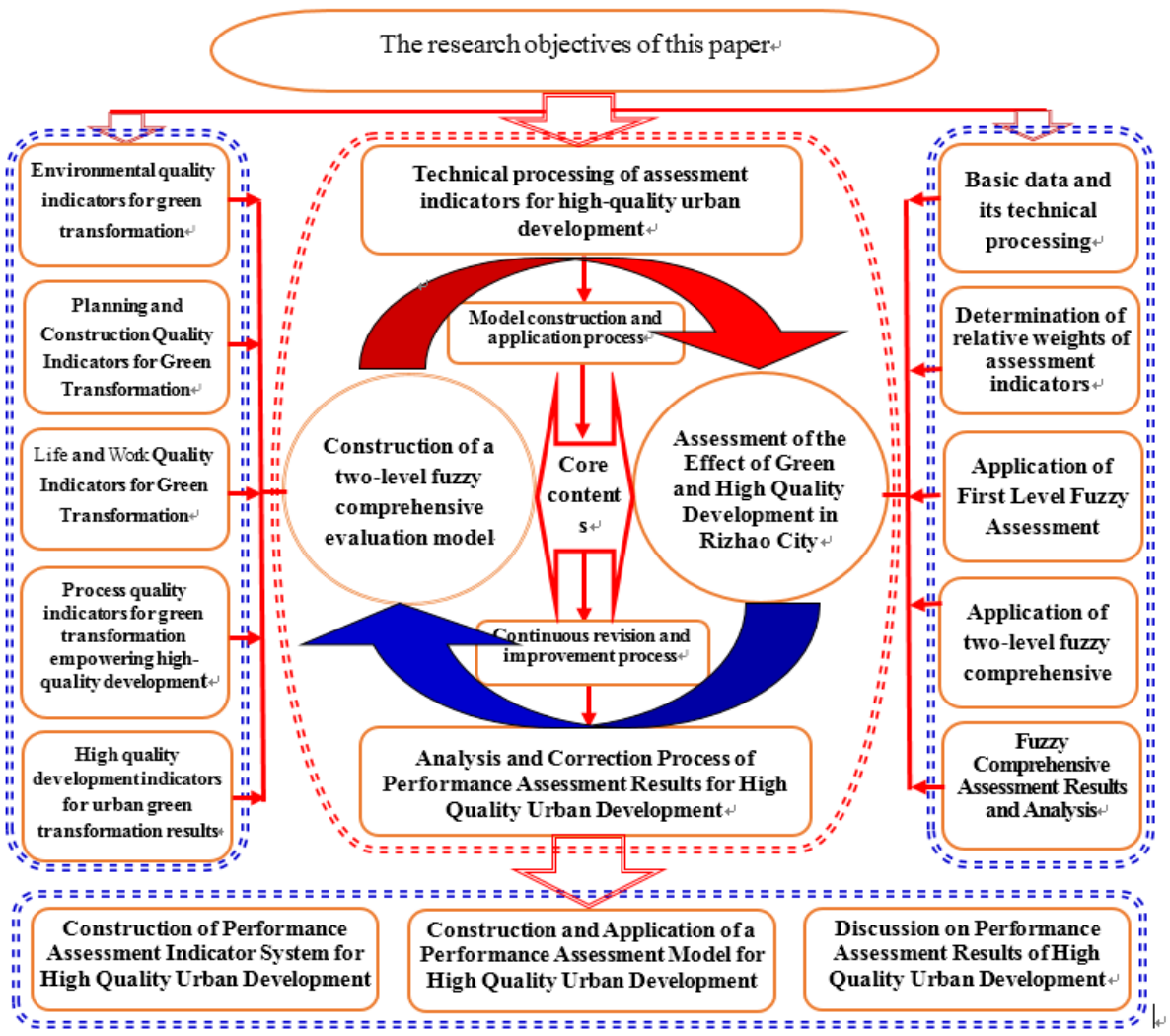- Cite article
- Download PDF
- Share article
- 19 Downloads
In order to study the effective methods of green and low-carbon transformation in Chinese cities, this paper takes Rizhao City, Shandong Province, China, as the object of study. Based on the analysis of the research background and the literature review, and taking into account the characteristics of Rizhao City, the following five categories with a total of 25 indicators were selected to construct the assessment indicator system: the environmental quality of green and low-carbon transformation, the quality of the planning and construction of green and low-carbon transformation, the quality of the life and work in the green and low-carbon transformation, the quality of the process of the green transformation empowering the development of high-quality, and the quality of the results of the green transformation empowering high-quality development. Based on this, the two-level fuzzy comprehensive assessment model is reconstructed, and the relevant statistical data provided by the government is used to comprehensively assess the high-quality development performance of the green transformation and empowerment cities in Rizhao City from 2012 to 2022. It is found that the performance of high-quality development empowered by green transformation in Rizhao City, China, has shown a continuous upward trend, having risen from Level Ⅳ in 2012, to Level II by 2022, and remained at Level II during 2018-2022, with its assessment results and showing an upward trend. Finally, based on the specific research results, the policy suggestions to improve the high-quality development performance of cities empowered by the green and low-carbon transformation of Rizhao City, China are discussed.
